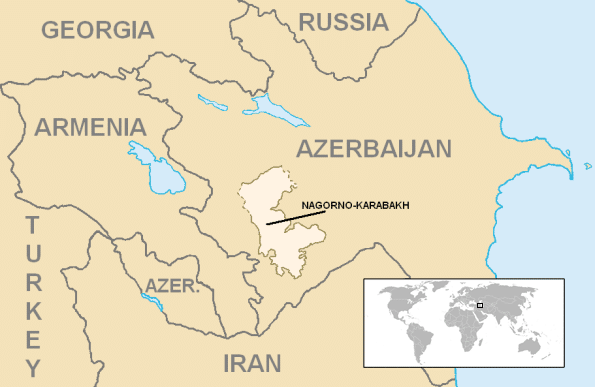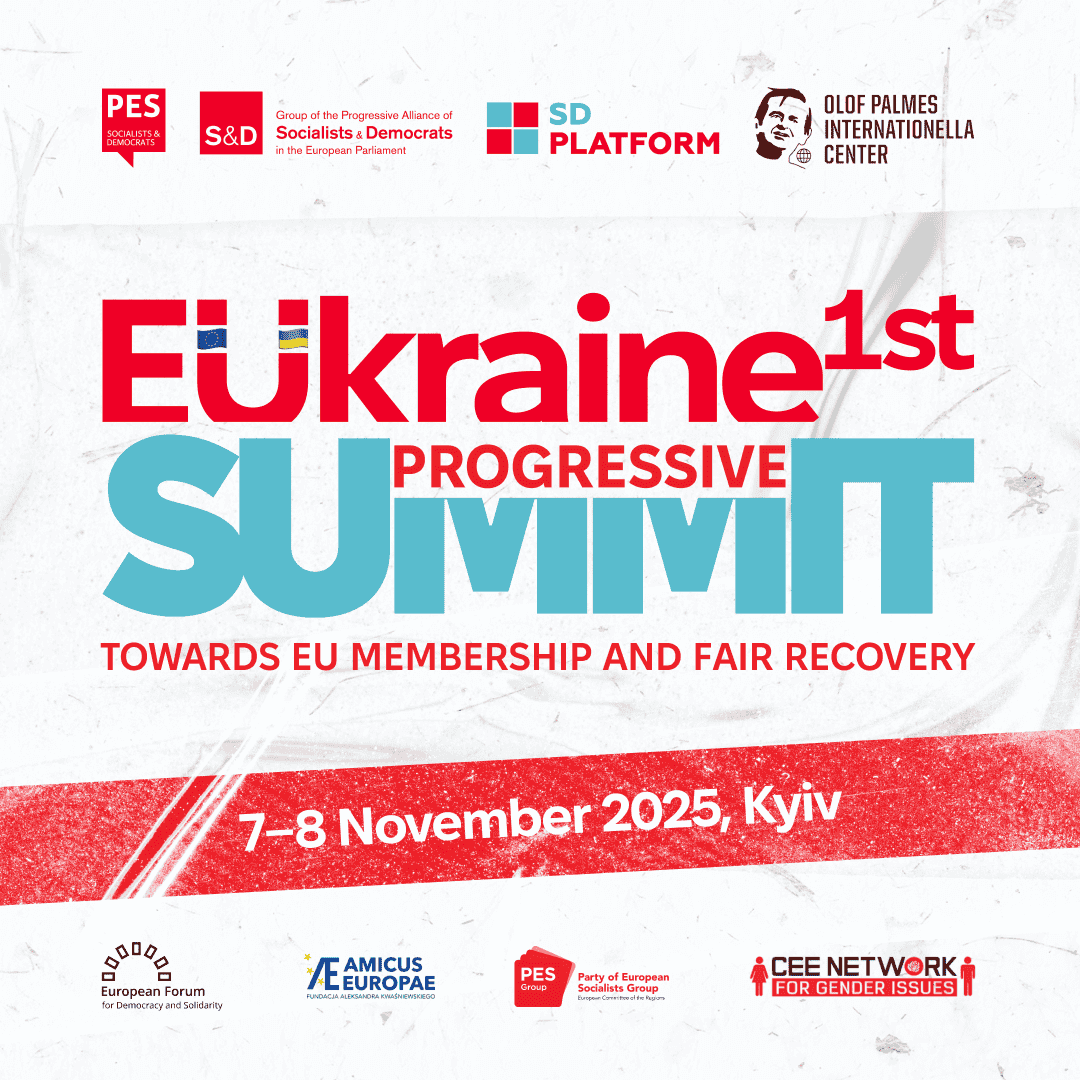Photo: Wikimedia Commons
The Nagorno-Karabakh region, which is close to both Armenia and Azerbaijan, has been under severe pressure since the end of the Second Nagorno-Karabakh War in 2020. The region became relevant again in December 2022, when Azerbaijan imposed a blockade on the road from Nagorno-Karabakh to Armenia. Recently, this blockade has led to a deterioration of the humanitarian situation in the region. This article discusses the alarming events in Nagorno-Karabakh, including their background and possible consequences.
How did the current tensions in Nagorno-Karabakh arise?
Nagorno-Karabakh, home to mainly ethnic Armenians, is recognised internationally mainly as part of Azerbaijan, based on the former borders of the Soviet Union. However, since most residents identify as Armenian and the region is locally administered by Armenian authorities, Armenia also lays claim to the region. From 1988 to 1994 and in 2020, these ethnic tensions led to two bloody wars. Since then, Armenia and Azerbaijan have been part of a Russia-led peace process, including a ceasefire to be enforced by Russian peacekeeping forces. However, the ineffectiveness of these measures has been painfully obvious: deadly ceasefire violations are the rule rather than the exception. In recent months, Azerbaijan has been blocking the Lachin Corridor, the main access road connecting Nagorno-Karabakh to Armenia and the rest of the world, almost without interruption. This illegal blockade began in December 2022 with, Azerbaijan staged, 'eco-activists' blocking the road. They left last April after four and a half months, when Azerbaijani authorities began consolidating the blockade by seizing land around the corridor, installing a military outpost preventing aid delivery, and installing a border checkpoint.
International actors including Russian peacekeepers, the International Court of Justice and the European Court of Human Rights have called on Azerbaijan to ensure the free movement of people and goods in Nagorno-Karabakh.
Human rights organisations are particularly concerned about the blockade because it poses several alarming risks: possible expulsion of local Armenians from their homeland, a risk of genocide, and a severe shortage of basic necessities and essential emergency supplies due to blocked imports of food, fuel and medicine. This dire situation has led to a humanitarian crisis, with residents trapped in the region facing closed schools, separated families and deliberately limited services by Azerbaijan.
The EU and the US have tried to mediate in the conflict through civilian missions and peace talks. However, Armenia and Azerbaijan have repeatedly reached an impasse, for instance when their representatives negotiated in Washington and Brussels. The lack of progress is also caused by highly ineffective Russian peacekeeping forces, leading some to question whether Russia is seeking a peaceful outcome to the conflict at all.
What has made the humanitarian situation worse now?
The situation has worsened in recent weeks as Azerbaijan has denied access to Nagorno-Karabakh to all aid supplies, including those from the International Committee of the Red Cross. This has left the 120,000 residents of Nagorno-Karabakh without outside aid, resulting in deaths and mass protests.
Although the region has been facing hardship for some time, recent developments have reached a new level of concern. For instance, on 29 July, Azerbaijani authorities halted the transfer of seriously ill patients from Nagorno-Karabakh to Armenia after a patient travelling with the Red Cross for treatment was arrested by Azerbaijani forces on war crimes charges.
The International Committee of the Red Cross (ICRC) has issued a call made to "the relevant decision-makers to allow the ICRC to resume its essential humanitarian operations in the area" due to its inability to reach the people who depend on humanitarian aid. "The civilian population is now facing a lack of life-saving medicines and basic necessities such as hygiene products and baby food," the Red Cross said, urging a "humanitarian consensus".
In addition, the European Union declared "very concerned about the serious humanitarian situation of the local population" in Nagorno-Karabakh.
What is the next step?
In contrast to the Armenian authorities in Nagorno-Karabakh. the Armenian government in Yerevan has expressed its willingness to recognise Nagorno-Karabakh as Azerbaijani territory because of strong pressure from Azerbaijan, Russia, the EU and the US to compromise and sign a peace treaty. However, they are also under strong domestic pressure not to compromise because of patriotic and nationalist sentiments stemming from the memory of the wars in Nagorno-Karabakh. With the blockade of Lachin, Azerbaijan seems to want to further strain these tensions and negotiations and isolate the government in Yerevan from the authorities in Nagorno-Karabakh. This instability strengthens Azerbaijan's negotiating position vis-à-vis the Pashinyan government in a very problematic way: it is unacceptable to provoke a humanitarian disaster for power at the negotiating table.
Azerbaijani authorities have denied blocking Nagorno-Karabakh, claiming they are offering aid through another corridor. The president of the unrecognised Armenian local government in Nagorno-Karabakh, who fears becoming dependent on Azerbaijan, responded on these claims by saying that "Azerbaijan caused this crisis and cannot be a solution to it". The EU stated also to be aware of these Azerbaijani offers, but that they "should not be seen as an alternative to the reopening of the Lachin Corridor."
Although the EU has criticised the Azerbaijani authorities, its current stance on the conflict is unlikely to be effective. The EU has made Azerbaijan one of its crucial trading partners by concluding important gas deals to replace its dependence on Russian gas. Despite this trade partnership, the EU should impose targeted sanctions and concrete ultimatums on Azerbaijan. International agreements and human lives threatened by the humanitarian conditions in Nagorno-Karabakh should be considered more important than gas deals.
The importance of a peaceful resolution of the conflict cannot be overemphasised because the current situation in Nagorno-Karabakh poses enormous risks. For example, there is a growing threat of famine in the region and the Armenian prime minister has pronounced that a new war with Azerbaijan is "very likely" until a peace treaty is agreed. Therefore, all parties involved must avoid these disastrous consequences at all costs. This implies prioritising human lives over strategic political decisions and prioritising concrete action over merely declaring "to be concerned".




